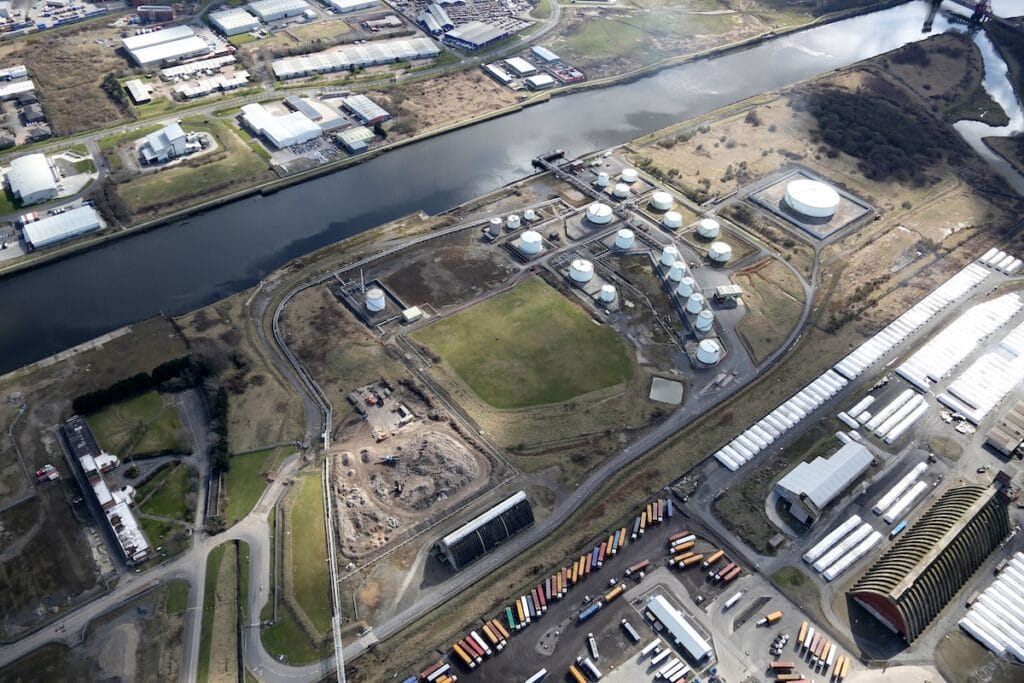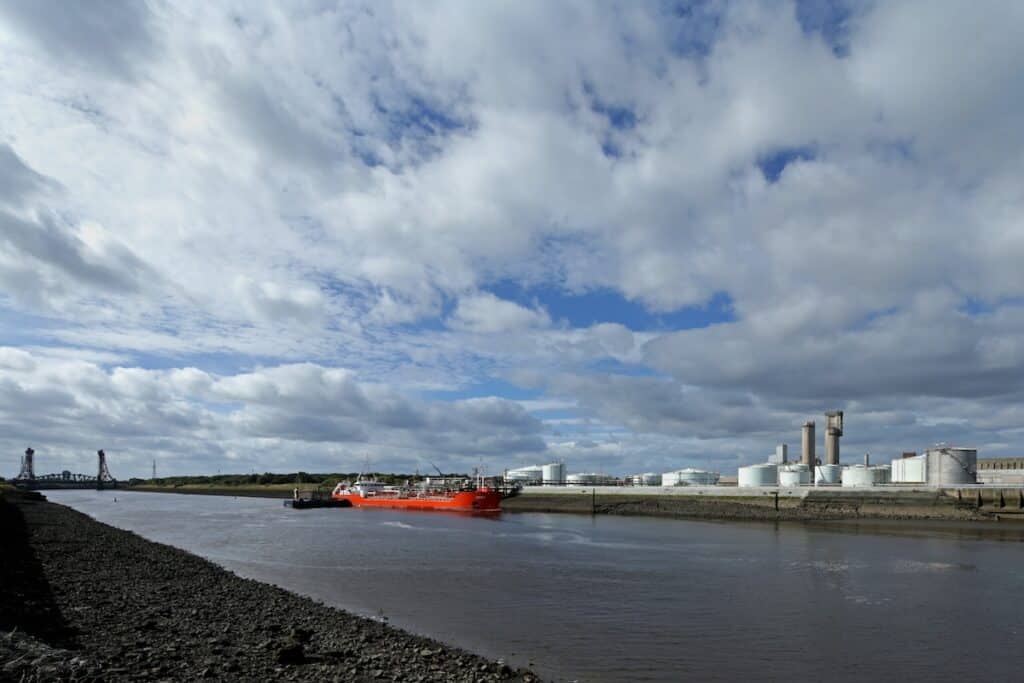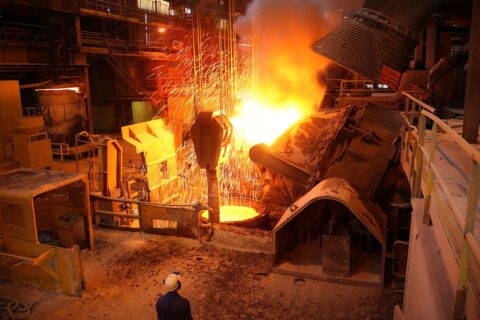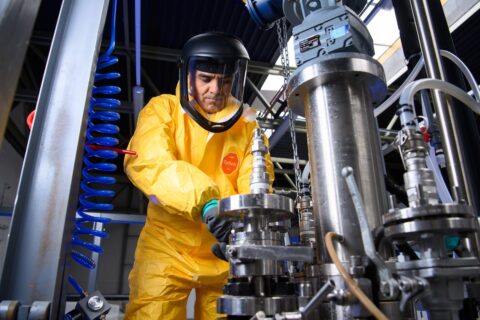
Construction of a green hydrogen production plant and refuelling station has won UK Government funding to start on site by the river in Stockton-on-Tees, England, as part of a planned national network.
Leading liquid logistics company Exolum has been awarded £2M to construct the hydrogen refuelling station, provided through the Tees Valley Hydrogen Transport Hub, which is funded by the Department for Transport and delivered in partnership by Innovate UK.
Exolum’s partners in the Tees Valley Hydrogen Vehicle Ecosystem consortium have been awarded a further £5M under the same scheme to deploy at least 20 hydrogen fuel cell trucks in the region.
Expected to be fully operational in 2025, the new project will lead to a first-of-a-kind coordinated deployment of hydrogen refuelling infrastructure and fleets of fuel-cell trucks in the Tees Valley.
The combined £7M investment package marks a vital step towards development of a nationwide network of hydrogen refuelling stations, envisaged across the UK.
Renewable refuelling and hub-and-spoke delivery

The project will feature the construction of a water electrolyser and a hydrogen refuelling station at Exolum’s Riverside terminal in Stockton-on-Tees. Located near to Middlesbrough town centre, the site sits at the intersection of the strategic A19 and A66 roads.
The electrolyser will produce green hydrogen using renewable electricity and will supply both the refuelling station — with a capacity of 1.5 tonnes per day — and other customers around the region using a hub-and-spoke delivery model.
Funding for EV consortium around the region
The project also includes UK fuel cell electric vehicle manufacturer Electra Commercial Vehicles and German manufacturer Quantron AG, in partnership with Novuna Vehicle Solutions, who together will deploy at least 20 fuel cell electric trucks, ranging from 4.2 to 27 tonnes.
These manufacturers will receive a total of £5M under the same funding competition. The vehicles will be used by some of the region’s largest vehicle operators, who will replace existing diesel vehicles, thereby reducing local air pollution and carbon emissions.
To inform sector development, data monitoring and performance evaluation of the hydrogen trucks will be carried out by Teesside University School of Engineering Computing and Digital Technologies and the Net Zero Industry Innovation Centre (NZIIC), which has extensive experience in fuel cells.
The Tees Valley Hydrogen Vehicle Ecosystem is a vital first step towards the development of a nationwide network of hydrogen refuelling stations, serving as a model for other regions to follow.
This project will help accelerate the UK’s transition to zero-emission fuel cell vehicles and reduce carbon emissions in support of the UK’s net zero ambition.
Tees Valley is part a strategic vision for hydrogen, says Andrés Suarez, Clean Energies Lead at Exolum:
“At Exolum we want to be a relevant player in green hydrogen technology, which is positioning itself as an efficient energy vector to help decarbonise sectors that are difficult to electrify, such as heavy-duty mobility.
“This project in the UK comes in addition to others we have under development and others already fully implemented, such as the first hydrogen plant for mobility in Madrid, Spain.”
From eco fuels to the circular economy
Exolum is Europe’s leading logistics company for liquid products and one of the largest in the world. Its core business is the transport and storage of a wide range of bulk liquid products, particularly refined and chemical products and biofuels, in a sustainable and efficient manner. The company operates in new sectors, such as eco-fuels, the circular economy and the development of new energy vectors.
In total, Exolum employs over 2,000 professionals and operates in 10 countries (Spain, UK, Ireland, Germany, the Netherlands, Portugal, Panama, Ecuador, Peru and the US).
The company manages a pipeline network of over 6,000km, 69 storage terminals and 47 airport facilities, with storage capacity of more than 11 million cubic metres.
Further Reading:
- More about Exolum, Europe’s leading logistics company for liquid products;
- More on its partners at Electra Commercial Vehicles, Quantron AG and Novuna Vehicle Solutions;
- More about the Tees Valley Hydrogen Hub, backed by the UK Government Department for Transport;
- More on the national support agency Innovate UK;
- Also on SustMeme, Hydrogen refuelling boost for California bus fleet;
- Also on SustMeme, Zero-emission hydrogen-electric HGV is UK first;
- Also on SustMeme, World’s first hydrogen double-decker bus unveiled in Aberdeen;
- Also on SustMeme, Hydrogen can clean up by 2050.
Check out the full archive of stories on the SustMeme Transport & Mobility Channel, now available to Sponsor.






